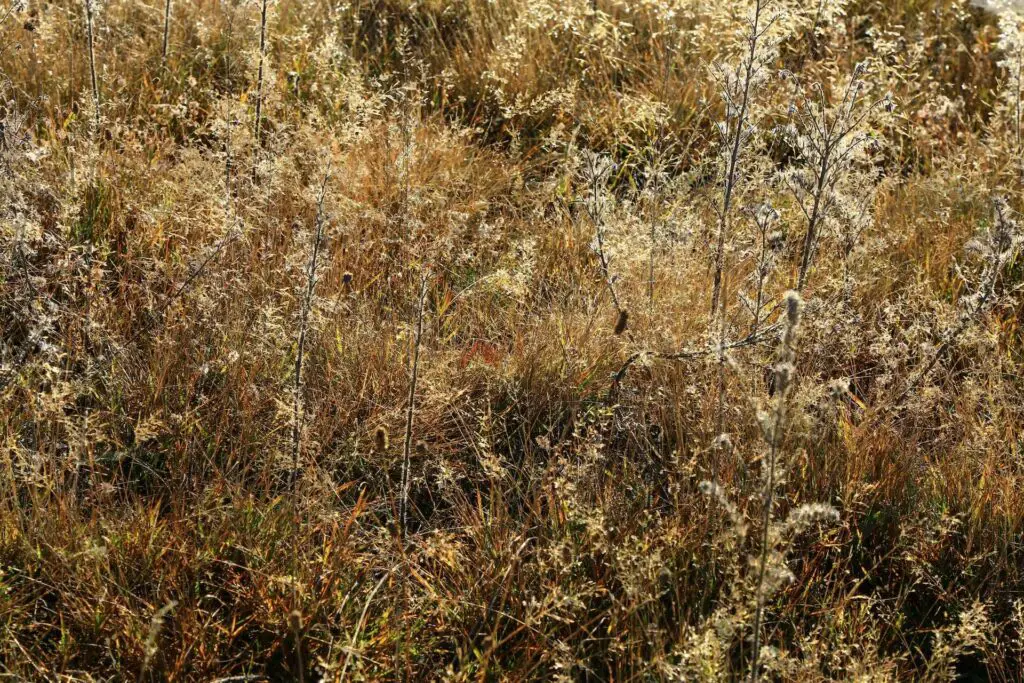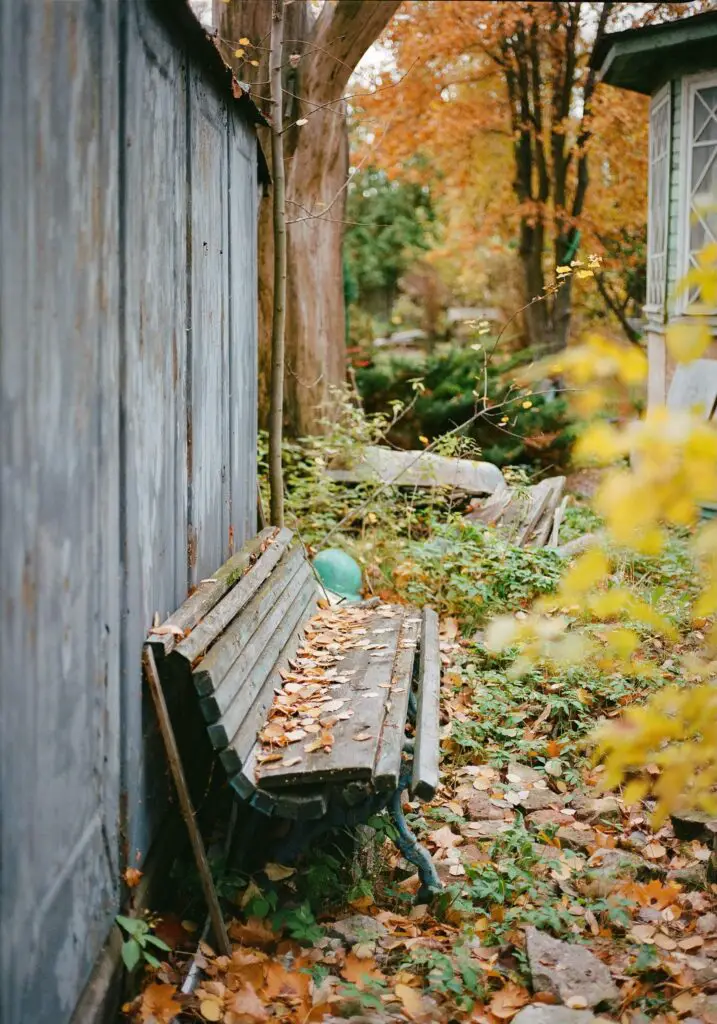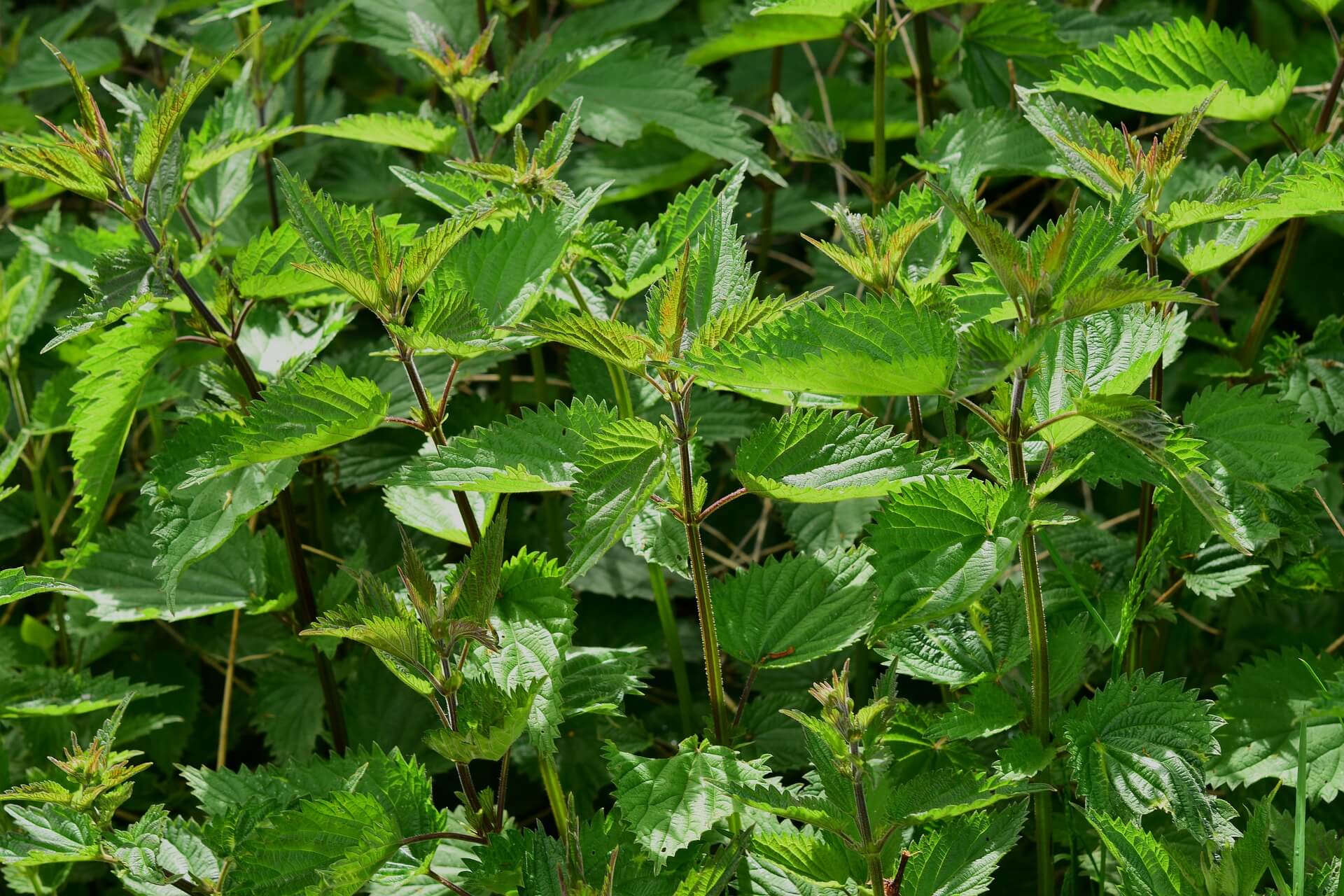My neighbour’s garden is an eyesore…what can I do? Will the council help? If you are asking yourself these questions, keep on reading.
Living in a picturesque neighbourhood can be a delight, but sometimes we come across an eyesore that disrupts the overall charm.
One common issue is having a neighbour’s garden that is messy, overgrown and an eyesore. The sight of unkempt lawns, rubbish, overgrown weeds, and neglected plants can be a source of frustration for homeowners.
Lots of people enjoy gardening but not everyone is green fingered and if not kept on top of, gardens can quickly get out of hand.
In this blog, I will explore the different aspects of dealing with a neighbour who has an overgrown garden and provide practical advice on how to address it.
Issue With Neighbours Having Overgrown Gardens
When a neighbour’s garden becomes overgrown, it can lead to several potential issues, including:
- Visual impact: An overgrown garden can significantly impact the visual appeal of the neighbourhood. It may create a neglected and unkempt appearance, detracting from the overall aesthetics and potentially lowering property values.
- Encouraging pests and vermin: Overgrown gardens provides an ideal habitat for pests and vermin such as rats. This can increase the likelihood of infestations, posing health and safety risks to the surrounding properties.
- Safety concerns: Overgrown gardens may obstruct pathways, driveways, or lines of sight, leading to potential safety hazards. Blocked sightlines can impede visibility for pedestrians and drivers, increasing the risk of accidents.
- Allergies and health issues: Overgrown gardens can release pollen, spores, and allergens into the air, potentially triggering allergies and respiratory problems for those living nearby.
- Weed spread: If the neighbour’s garden contains invasive or noxious weeds, the lack of maintenance can lead to their rapid spread into surrounding properties. This can be detrimental to the health and appearance of other gardens and lawns.
- Neighbouring property damage: Neglected gardens may cause damage to neighbouring properties. Overgrown branches or roots can encroach onto fences, buildings, or utilities, leading to potential structural damage or costly repairs.
- Community harmony: The presence of an overgrown garden can create tension and strain neighbourly relationships. It may lead to disputes, resentment, and a sense of neglect within the community.
It is important to address these issues respectfully and find a mutually beneficial resolution to avoid the issue escalating.
Open communication, understanding, and a collaborative approach can help the potential problems caused by a neighbour having an overgrown garden.

Research Local Garden Laws and Regulations
In the UK, there are several laws and regulations that may apply when dealing with a neighbour’s garden that is overgrown and an eyesore.
It’s important to note that specific regulations can vary depending on the local authority, so I recommend you consult your local authority or seek legal advice for accurate information in your area.
The council will only be able to assist if your neighbour’s garden is so severely overgrown that it amounts to a statutory nuisance or if the garden is such an eyesore that it is negatively impacting the area.
However, here are some general guidelines:
Section 215 Notices
Section 215 Notices are a powerful tool that local authorities can use to address neglected or unsightly land, including overgrown gardens.
If a property owner fails to comply with the notice within the given timeframe, the local authority has the power to undertake the necessary work themselves and recover the costs from the property owner.
I have included further information on Section 215 Notices below.
High Hedges
The Anti-Social Behaviour Act 2003 provides provisions for high hedges that may be causing a nuisance or blocking light to neighbouring properties.
Local authorities have the power to intervene and issue remedial notices if a hedge is considered too high and causing an adverse impact on your property.
The GOV.UK website has further information on neighbours’ high hedges that you can read here.
Boundary Encroachment
If a neighbour’s weeds are encroaching on your property, you have the right to cut the encroaching weeds back.
However, the law states that you should ask your neighbour if they want the clippings back, as they are entitled to these (bizarre, I know). In reality, it would be rare for your neighbour to take them but you should legally ask.
Weeds and Nuisance Plants
Local authorities have the authority to take action if overgrown weeds or nuisance plants on a property are causing a detriment to the local environment, neighbouring properties, or public health.
The Weeds Act 1996 lists the noxious/injurious weeds as:
- Common ragwort
- Curled leafed dock
- Common wild oat
- Winter wild oat
- Creeping thistle
- Broad leafed dock
- Spear thistle
They may issue notices requiring the property owner to address the issue. You can find out more information here on the GOV.UK website.
Environmental Protection
The Environmental Protection Act 1990 addresses issues related to statutory nuisances, including overgrown gardens that may cause a public health or environmental nuisance.
For example, if your neighbour’s garden is full of rubbish then the environmental health department should investigate this for you.
Local authorities have the power to investigate complaints and take action if necessary.
You can find out more information here about contacting the Environmental Health Department.
Housing Association and Landlord Stipulations
If the property is a council house, owned by a housing association or rented by a private landlord, there may be specific rules and regulations in place regarding garden maintenance and appearance.
These rules are usually outlined in the tenancy agreement, property’s title deeds or lease agreements.
If you know who owns the property and the tenant has no intention of resolving the issue, then you should try and contact the owner to notify them of the problem.
If direct communication fails or the issue persists, contacting the local council’s environmental health department can provide further guidance on available options and the specific regulations applicable in your area.

What Can I Do About My Neighbour’s Messy Garden
If you find yourself dealing with a neighbour’s garden that is overgrown and an eyesore, here are some steps you can take to address the situation respectfully:
- Reflect on empathy and understanding
Approach the situation with empathy and understanding. Recognise that your neighbour may have reasons for the neglect, such as illness, resources, or knowledge. Keep in mind that everyone’s circumstances are different.
- Initiate a friendly conversation
Reach out to your neighbour in a friendly and non-confrontational manner. Express your concerns about the appearance of their garden and how it affects you and the neighbourhood. Use “I” statements to avoid sounding accusatory and emphasise that you’re looking for a solution that benefits both parties.
- Follow up with a letter
If talking to your neighbour doesn’t help then you can follow up with a letter outlining the issues and asking them to clear the garden. I have a blog on how to write a complaint letter to a neighbour that you can read here.
- Offer assistance
Instead of just pointing out the problem, offer your help. Some neighbours may appreciate the offer of assistance in maintaining their garden. You can suggest working together or sharing resources, such as gardening tools or knowledge.
I appreciate that you may not want to help or have the time, but you could at least recommend a local gardener.
You can use Bark.com to get quick and free quotes from gardeners. I have personally used Bark and I would recommend it. - Research local regulations
Familiarise yourself with any local regulations or bylaws related to garden maintenance, property upkeep, or fences. Understanding the rules will help guide your approach and determine if there are any legal requirements to address the issue.
- Contact the council
If you are unable to resolve the matter with your neighbour then contact your local council to make a complaint about the garden. The council will be able to provide some initial advice and also undertake an investigation and take action, if necessary.
- Explore mediation options
If direct communication or the council doesn’t yield results or if tensions escalate, consider involving a neutral third party. This can be a professional mediator who specialises in dispute resolution. Mediation can help facilitate constructive conversations and find compromises.
- Enhance your own property
While working towards a resolution, focus on maintaining and enhancing the appearance of your own property.
Plant hedges, such as laurel or install privacy screens to create visual separation. Enhancing your own garden’s beauty can offset the eyesore nearby and create a more pleasant view for yourself. - Engage the community
If appropriate, involve other neighbours and you could consider forming a neighbourhood gardening club. Collaborate on community cleanup events, gardening workshops, or shared resources. By creating a sense of community, you can inspire positive change and encourage collective efforts to improve the neighbourhood’s appearance. I appreciate that this won’t be for everyone.
Remember, patience, understanding, and open communication are key when addressing such sensitive issues with neighbours.
By taking a proactive and respectful approach, you increase the chances of finding a mutually agreeable solution that benefits everyone involved.
The following might be of interest to you:
- Trash Talk: How To Handle Neighbours Putting Rubbish In Your Bin
- Wheelie Bin Issues With Neighbours? All You Need To Know
- Neighbours Bins Against My Fence (This Might Help)

Can The Council Force My Neighbour To Tidy Their Garden
If there is a legitimate environmental health concern associated with your neighbour’s untidy garden, or the messy garden is negatively impacting on the area, the council may have the authority to intervene.
For example, environmental health may act if there are rats in your neighbour’s garden, that are now coming onto your property.
The council can assess the situation, investigate any potential statutory nuisances, and take appropriate action.
This may include issuing notices, such as Section 215 Notices, to require the property owner to tidy their garden within a specified timeframe.
Failure to comply can result in the council taking action themselves and recovering the costs incurred from the property owner.
Section 215 Notice: Overgrown Garden Notice
A Section 215 Notice, also known as an “Untidy Land Notice” or “Overgrown Garden Notice,” is a legal tool available in the UK under the Town and Country Planning Act 1990. A Section 215 Notice is used by local authorities to address the issue of neglected or unsightly land, including overgrown gardens, that negatively impact the visual amenity of an area.
When a local authority receives complaints about an overgrown garden or a property that is poorly maintained, they can issue a Section 215 Notice to the property owner.
The notice requires the owner to take action and remedy the condition of the land within a specified timeframe.
The Section 215 Notice will outline the specific actions required, such as cutting back vegetation, removing rubbish, or tidying the area.
The timeframe given for compliance can vary, but it is typically reasonable and allows the property owner sufficient time to rectify the situation.
If the property owner fails to comply with the notice within the given timeframe, the local authority has the power to take action and undertake the necessary work to bring the land into an acceptable condition.
The costs incurred for this work can be recovered from the property owner.
Section 215 Notices provide local authorities with a means to enforce minimum standards for the appearance and upkeep of land within their jurisdiction.
What Can I Do If My Neighbour’s Garden Is Full Of Rubbish
If your neighbour’s garden is full of rubbish in the UK and has become an eyesore, the local council has certain powers and actions they can take to address the situation.
If your neighbour’s garden is full of rubbish and is a health and safety concern then you can contact the Environmental health department to make a complaint about your neighbour.
Here are some steps the council can potentially take:
- Investigation: Upon receiving a complaint, the council’s environmental health department can conduct an investigation to assess the severity of the issue and determine if it constitutes a statutory nuisance.
- Notices: If the council deems the rubbish-filled garden to be a statutory nuisance, they can issue an abatement notice to the property owner. This notice requires the owner to take appropriate action within a specified timeframe to address the issue.
- Fixed Penalty Notice: In some cases, the council may issue a fixed penalty notice to the property owner, imposing a financial penalty for failing to comply with the requirements to clean up the garden.
- Clearance Action: If the property owner does not comply with the abatement notice or the fixed penalty notice, the council can take direct action to clear the rubbish from the garden. They may hire contractors to remove the waste, and the costs incurred can be recovered from the property owner.
- Legal Action: In severe or persistent cases where the property owner fails to cooperate, the council can take legal action, which may result in prosecution or fines.
It’s important to report the situation to your local council’s environmental health department, providing them with relevant details and evidence of the rubbish-filled garden.
They will assess the case and take appropriate steps to address the issue in accordance with local regulations and bylaws.
If you have seen your neighbour fly-tipping, then you can report this on the GOV.UK website.
Conclusion
Dealing with a neighbour’s garden that is an eyesore requires tact, empathy, and open communication.
If you are unable to resolve the situation with your neighbour then contact the council and they should be able to help you if your neighbour’s garden is severely overgrown.
The council will only be able to take action if the garden is an eyesore that is detrimental to the local area or creates a health and safety concern. Long grass or a few weeds will not be enough.
If the council can’t help and you are desperate to improve the situation you may have to offer to get your hands dirty and help your neighbour.





Leave a Reply